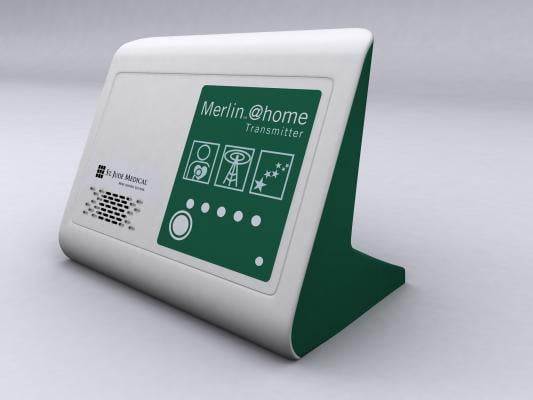
May 20, 2015 — New data from St. Jude Medical found that patients with cardiac devices who use remote monitoring have significantly fewer hospitalizations and lower overall healthcare costs than patients who do not. The data was presented during a late-breaking clinical trial session during Heart Rhythm 2015, the Heart Rhythm Society’s annual scientific sessions. The findings were a result of a five-year study, one of the largest to date on remote monitoring technologies.
“This study is the first of its kind to find an economic benefit when remote monitoring is utilized in pacemaker, defibrillator and cardiac resynchronization patients in the U.S.,” said Jonathan Piccini, M.D., associate professor of medicine at Duke University Medical Center in Durham, North Carolina. “Use of remote monitoring is associated with lower risks of hospitalization, shorter hospital stays, and lower rates of heart failure and stroke hospitalization. Additionally, since fewer than half of cardiac device patients currently use remote monitoring, our findings suggest a significant opportunity for quality improvement. These important observations should have significant implications for patient management, as well as costs to the healthcare system.”
The study, which obtained data from a real-world setting, reinforces the important role of remote monitoring in improving the overall care of patients treated with implantable cardiac devices. Researchers analyzed data from more than 90,000 patients with pacemakers, implantable cardioverter defibrillators (ICDs), and cardiac resynchronization therapy (CRT) devices. The data showed that remote monitoring with systems, such as the St. Jude Medical Merlin.net Patient Care Network (PCN), eliminates 10 hospitalizations and 119 hospital days and resulted in cost savings of more than $370,000 per 100 patients annually.
The findings offer additional evidence of the benefits of remote monitoring. In a study presented at last year’s Heart Rhythm Society meeting, and recently published in the Journal of the American College of Cardiology, St. Jude Medical found improved survival rates of patients using the company’s Merlin.netPCN. Patients with high adherence to remote monitoring had more than twice (2.4x) the probability of survival than that of patients without remote monitoring. High adherence was measured as weekly transmissions of patient data from the Merlin@home transmitter to the Merlin.net PCN at least 75 percent of the time. Recommendations for remote monitoring technologies were recently updated and published by the Heart Rhythm Society.
“Recent data surrounding remote monitoring technologies have been important to advancing the understanding of the benefits these systems provide,” said Niraj Varma, M.D., electrophysiologist at the Cleveland Clinic in Cleveland, OH. “The updated recommendations announced recently by the Heart Rhythm Society reflect the findings from these important studies and highlight the importance of using remote monitoring systems to improve the consistency of follow-up care for patients. We will continue to work with industry to further reinforce how utilization of the remote monitoring systems can improve clinical outcomes for patients around the world.”
For more information: www.sjm.com


 January 05, 2026
January 05, 2026 









